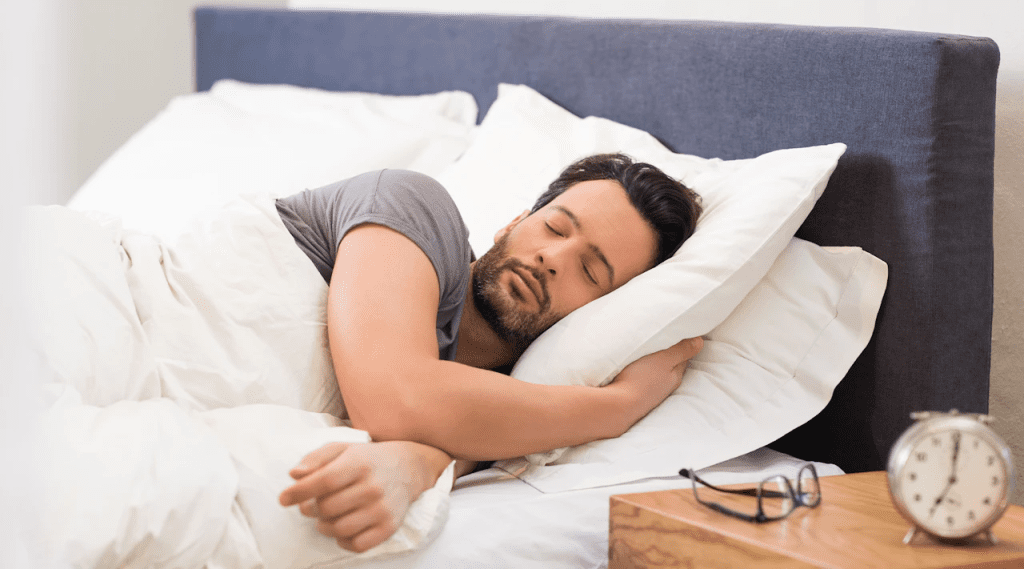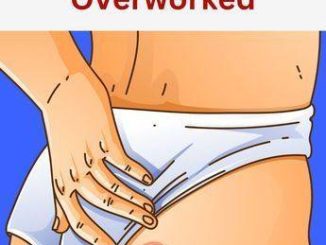Let’s be honest—when we think of improving our health, we usually start with what’s on our plate, how often we work out, or how well we manage stress. But here’s a game-changer that many people overlook: your sleeping position. It’s something you do every single night, yet it silently impacts your body in major ways. From how your spine aligns to how well your organs function, your posture in bed could be the missing piece in your wellness routine.
Your Sleeping Position Is More Powerful Than You Realize

We spend nearly a third of our lives sleeping. That’s thousands of hours each year with your body in one posture. So, if your position is off—even slightly—it can lead to chronic discomfort, poor sleep quality, and even long-term health problems.
Think about it: Have you ever woken up with neck stiffness, a sore back, or numb arms? Those aren’t random aches. They’re often the result of poor alignment during sleep. And even if you’re getting eight hours of shut-eye, the quality of that sleep could be compromised by your posture.
The Most Common Bad Sleeping Positions That Wreak Havoc
Not all positions are created equal. Some postures may feel comfortable at first but can cause problems down the line. Let’s break down the ones you should try to avoid.
Sleeping on Your Stomach: A Recipe for Pain
At first glance, lying face down might seem harmless—even soothing. But in reality, it’s one of the most harmful ways to sleep. Why? Your neck has to twist sharply to the side so you can breathe, and your spine flattens in an unnatural way. This combo leads to strain on the neck and lower back.
Over time, you could develop chronic neck stiffness, lower back pain, or even persistent headaches. If you wake up feeling tense and sore, your stomach-sleeping habit might be the culprit.
Video : The Best Sleep Position For Your Health
Arms Overhead or Under the Pillow: Nerve Nightmare
We’ve all been there—drifting off with arms stretched above the head or tucked under a pillow. But these positions can limit circulation and compress nerves. That tingling “pins and needles” feeling in your hands or arms? It’s a sign that your body is literally cutting off its own blood flow.
Long-term, this position may lead to numbness, shoulder issues, and even nerve damage. It’s best to keep your arms at your sides or slightly bent in front of you.
The Fetal Position (Too Tightly Curled): Not As Cozy As It Seems
Many side sleepers adopt a fetal pose, curling their knees tightly to their chest and tucking their chin down. While sleeping on your side has benefits, this ultra-curled posture can restrict deep breathing and compress your spine.
This position can also add unnecessary tension to your back and neck. If you sleep like a human pretzel, it’s time to loosen up. Aim for a relaxed side position with just a slight bend in your knees instead.
The Healthiest Sleeping Position: Why Your Left Side Is King
So what’s the best way to sleep? According to sleep experts, the answer is surprisingly specific: on your left side.
Sleeping on your left has a whole list of health benefits that might surprise you:
It aids digestion – Thanks to gravity, your stomach and digestive organs function more efficiently on the left side.

It improves circulation – Particularly helpful for pregnant women and people with high blood pressure.
It reduces acid reflux – Keeping your stomach below the esophagus helps prevent nighttime heartburn.
It supports spine alignment – This position naturally cradles the spine, relieving lower back pressure.
It promotes better breathing – For snorers or those with sleep apnea, this posture can keep airways open.
It may take time to adjust if you’re used to another position, but using a body pillow or a wedge pillow can help you train your body to stay on your left.
Simple Changes to Improve Your Sleep Posture Tonight
You don’t need a full bedroom makeover to sleep better. A few smart tweaks can do wonders for your comfort and health.
Choose the right pillow – Your head should stay aligned with your spine. That means no neck craning or sinking into a too-soft pillow. Side sleepers should go for a firm, supportive pillow; back sleepers need a medium-loft pillow; and stomach sleepers (if you must) should use the flattest pillow possible.
Support your knees and hips – If you sleep on your side, placing a pillow between your knees helps keep your hips and spine in a straight line. This reduces strain on your lower back.
Invest in a quality mattress – Your mattress should support the natural curves of your spine. Too soft? You’ll sink and twist. Too firm? It’ll push against pressure points. Memory foam and hybrid mattresses often provide balanced support.
Train your sleep position – It may feel awkward at first to change how you sleep, but consistent effort pays off. Try using pillows to block movement, or start every night in your new target position.
Listen to your body – Waking up sore or stiff is your body’s way of saying, “Hey, something’s not right.” Pay attention to how you feel in the morning and adjust accordingly.
Video : The MOST DANGEROUS Sleep Position You Never Knew!
When to Seek Professional Help
If changing your sleep posture and adjusting pillows doesn’t bring relief, it might be time to consult a chiropractor, physical therapist, or sleep specialist. Chronic discomfort can sometimes stem from deeper alignment issues or sleep disorders that need targeted treatment.
Conclusion: Better Sleep Starts with Better Posture
When it comes to health, sleep often takes a backseat to diet and exercise—but it shouldn’t. The way you position your body during rest can have a powerful impact on your overall well-being. From reducing pain to improving digestion and breathing, your sleep posture matters.
It’s not about being perfect—it’s about being intentional. With a few simple changes and a little awareness, you can create a sleep environment that supports your body, boosts your energy, and sets you up for better days ahead.
So tonight, before you drift off, take a moment to notice how you’re lying down. Adjust your pillow. Align your spine. And give your body the rest it truly deserves.


